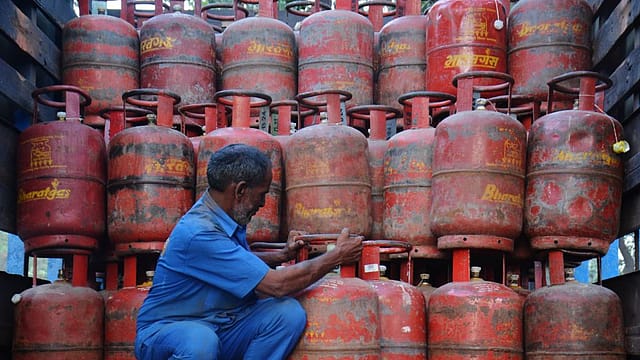Commercial LPG cylinder price slashed by ₹171.5
ADVERTISEMENT

State-run oil marketing companies (OMCs) on Monday reduced the price of a commercial LPG cylinder by ₹171.5 with immediate effect.
This is the second straight monthly reduction in commercial LPG prices.
A 19-kg commercial LPG now costs ₹1,856.5 in New Delhi, down from ₹2,028, according to price notification from government-owned fuel retailers.
The price cut comes as a relief for the restaurant and hotel industry, which uses these cylinders.
On April 1, the price of a commercial LPG cylinder was cut by ₹91.5. The two price cuts, however, haven't offset the ₹350.5 per cylinder price hike from March 1.
Meanwhile, domestic cooking gas prices remained unchanged at ₹1,103 per 14.2-kg cylinder in the national capital. Oil marketing companies had on March 1 hiked the prices of domestic liquefied petroleum gas (LPG) cylinders by ₹50 per unit.
Oil public sector undertakings (PSUs) such as Indian Oil Corporation (IOC), Bharat Petroleum Corporation Ltd (BPCL) and Hindustan Petroleum Corporation Ltd (HPCL) revise cooking gas prices on the 1st of every month based on average international prices in the previous month.
State-run oil retailers have also slashed aviation turbine fuel prices by 2.45% amid the drop in international crude oil prices. The ATF price was cut by ₹2,414.25 per kilolitre to ₹95,935.34 per kl in Delhi.
This is the third consecutive monthly reduction in jet fuel prices. ATF rates were slashed by 4% (₹4,606.50 per kl) on March 1 and by 8.7% (₹9,400.68 per kl) on April 1.
ATF fuel prices are changed twice every month based on the average price of the international benchmark in the preceding fortnight. Brent crude, the international benchmark, was trading at $79.62 a barrel on Monday.
According to Moody's, a drop in international crude oil prices will ease marketing losses for the three state-owned oil retailers. IOCL, BPCL and HPCL together control around 90% of the fuel retailing network in India.
Moody's expects marketing margins to normalise only when the refining and marketing companies' net realised prices for petrol and diesel are allowed to freely align with international prices. "This will likely happen only in 2024 after the conclusion of general elections in India," the rating agency said in January.
Even though petrol and diesel prices in India are deregulated, net realised prices for the state-owned refining and marketing companies have remained unchanged since April 2022 as the government sought to limit the effects of inflation on consumers.
As per Moody's, frequent government interference and the lack of a transparent and predictable pricing regime in the country is credit negative for the refining and marketing sector.